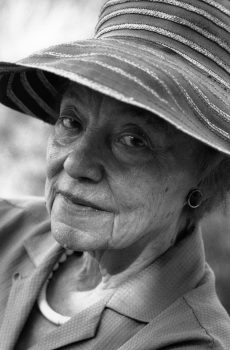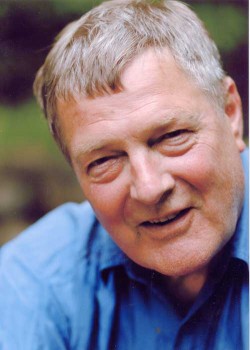Thomas Warburton
Issue 2/1987
| Archives online, Authors, Reviews

Solveig von Schoultz. Photo: Charlotta Boucht
That Solveig von Schoultz occupies the position of ‘grand old lady’ of Finland-Swedish poetry is beyond question; yet it is an epithet that fits her badly. It all too easily suggests the image of a stern and queenly poetess, an Edith Sitwell, Marianne Moore or Gabriela Mistral. The poetesses of Scandinavia are, by and large, less solemn – more gentle and down-to-earth, even when they grow older and wiser and ascend some of Parnassus’s more elevated thrones.
Solveig von Schoultz has, of course, had a long journey to the top. She has behind her twelve collections of poetry, at least fifteen volumes of prose, and an even greater number of plays for radio, television and theatre, spanning a good fifty years’ acitivity as a writer.
In this long artistic career there is both continuity and development. It might be said that the continuity is represented by the fact that from the very beginning she has preferred to describe women – their daily lives, their loves, thoughts, impulses, relationships. But since so much in the world of women and in women’s thinking has changed during the decades since her literary debut in the 1930s, both her themes and her outlook have necessarily altered, too. Among other things, she has had many of her early, then only half-developed ideas taken up by a later generation, and has thereby had them given back to her renewed. As a feminist she has always been one of the least militant, and for a short time some of her younger co-sisters were uncertain about the strength of her commitment to the Cause. More…


